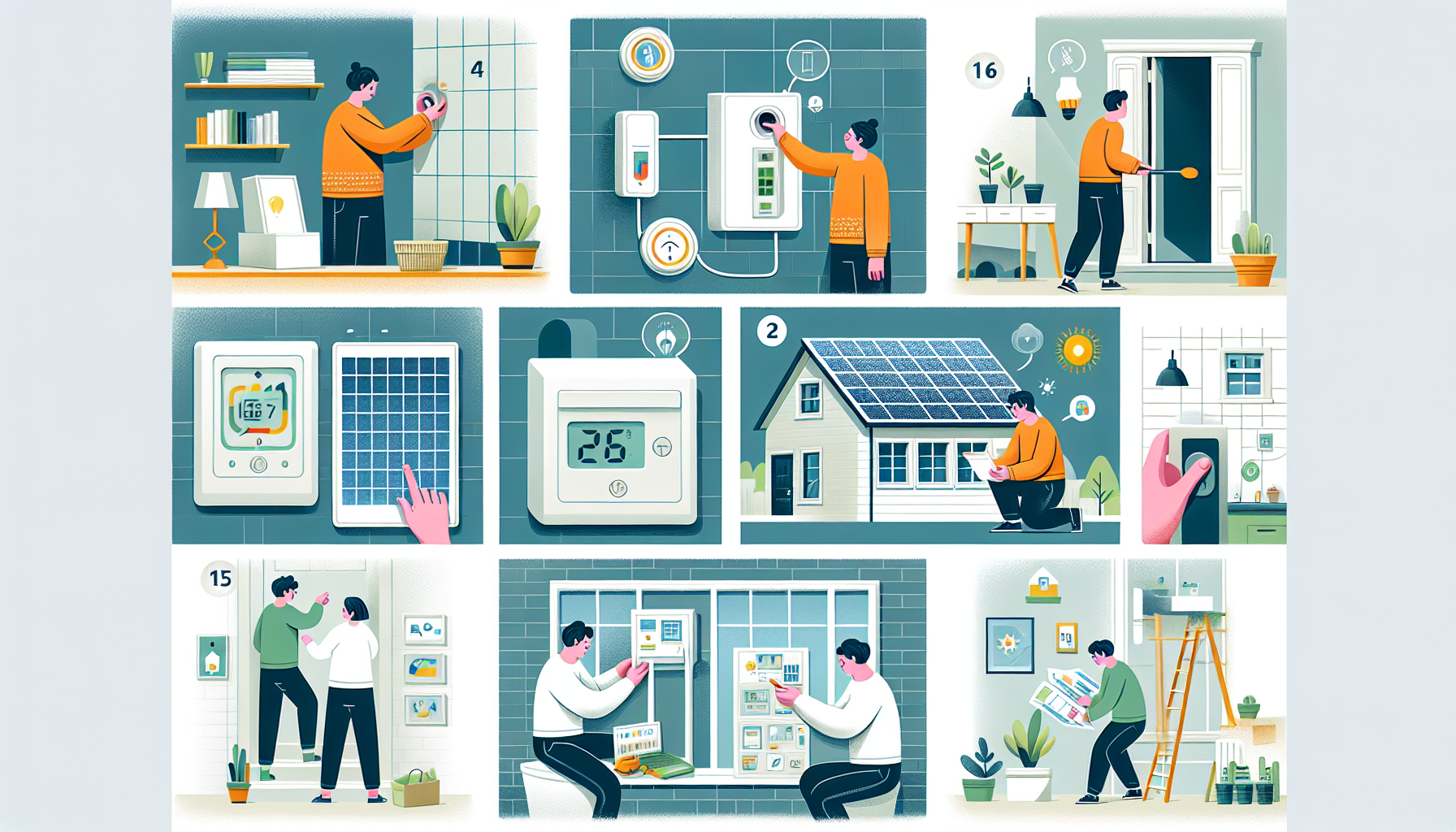Table of Contents
Introduction
Energy efficiency in homes has become a key priority for many households due to rising energy costs and the increasing need to reduce carbon footprints. By implementing practical strategies, you can save money on utility bills and create an environmentally friendly living space. This article explores effective ways to enhance energy efficiency in your home.

1. Why Energy Efficiency Matters
Improving energy efficiency not only helps lower electricity bills but also reduces greenhouse gas emissions. It ensures that homes use less energy to perform the same functions, contributing to a sustainable future while enhancing comfort and convenience.

2. Key Areas to Focus on for Energy Savings
Insulation
Proper insulation minimizes heat loss in winter and heat gain in summer.
- How to Improve: Insulate walls, roofs, and floors with materials like fiberglass or foam. Seal gaps around windows and doors to prevent drafts.
Lighting
Switching to energy-efficient lighting significantly reduces energy consumption.
- Tip: Replace traditional incandescent bulbs with LED or CFL bulbs, which use up to 75% less energy and last longer.
Appliances
Older appliances tend to consume more energy.
- Upgrade: Invest in Energy Star-certified appliances, which are designed to use less electricity without compromising performance.
Heating and Cooling Systems
HVAC systems account for a large portion of household energy use.
- Improve Efficiency: Regularly clean and maintain your HVAC system. Install a programmable thermostat to optimize temperature settings.

3. Practical Tips to Improve Energy Efficiency
- Install Smart Home Technology: Devices like smart thermostats and smart plugs can automate energy-saving practices.
- Use Solar Panels: Harness renewable energy to power your home and reduce dependency on the grid.
- Upgrade Windows: Use double or triple-glazed windows to improve insulation and minimize energy loss.
- Switch to Energy-Efficient Water Heating: Tankless water heaters consume less energy by heating water only when needed.
- Unplug Unused Electronics: Many devices consume power even when turned off. Use power strips to easily disconnect multiple devices.
4. Benefits of Energy-Efficient Homes
- Cost Savings: Lower monthly utility bills mean more money in your pocket.
- Increased Comfort: Better insulation and efficient systems maintain consistent indoor temperatures.
- Eco-Friendly Living: Reduced energy consumption contributes to a healthier planet.
- Higher Property Value: Energy-efficient homes are more attractive to buyers, offering a competitive advantage in the real estate market.

Energy-Efficient Homes
Conclusion
Enhancing energy efficiency in your home doesn’t have to be overwhelming. Simple upgrades, such as improving insulation, using smart technology, and investing in energy-efficient appliances, can make a significant impact. Not only will you save money and increase comfort, but you’ll also contribute to a more sustainable future.
For more tips on sustainable living and home improvement, visit Allure Insight, your guide to an eco-friendly lifestyle.